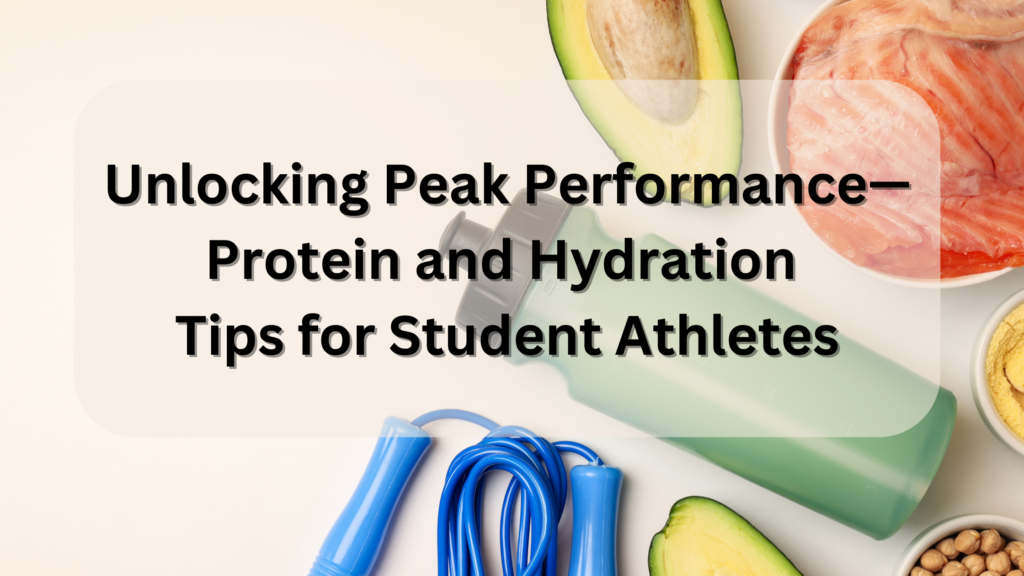
Balancing academics, sports, and social life can be challenging for high school athletes. However, optimal nutrition and hydration are essential for performance, recovery, and long-term health. Here’s a guide to understanding how much protein and water your body needs—and how to ensure you’re getting enough.
Why Protein Matters for Student-Athletes
Protein is essential for muscle repair, growth, and overall performance. When you train, your muscles undergo stress that leads to tiny tears. Protein helps rebuild these fibers, making them stronger and more resilient. Additionally, protein supports immune function, which is vital during rigorous training seasons.
How to Calculate Your Protein Needs
High school athletes should aim for 0.8-1.2 grams of protein per pound of body weight daily, depending on training intensity:
- A 120-pound athlete: 96-144 grams of protein/day.
- A 160-pound athlete: 128-192 grams of protein/day.
Spread this protein intake evenly across meals and snacks for best results. Aim for 20-40 grams of protein every 3-5 hours to maintain muscle recovery and energy
Building a Protein-Packed Routine
Breakfast: Start with a protein-rich meal to fuel your morning. Try scrambled eggs with spinach, or a plant-based tofu scramble with whole-grain toast.
Snacks: Pack portable options like mixed nuts, protein bars, or hard-boiled eggs.
Lunch: Include lean proteins (like chicken, fish, or legumes), paired with complex carbs such as quinoa or sweet potatoes.
Post-Practice Recovery: After intense activity, prioritize fast-digesting proteins like a whey or pea protein shake, paired with a banana or oatmeal
The Hydration Equation
Staying hydrated is crucial for athletic performance. Dehydration impacts muscle strength, endurance, and even cognitive function.
How Much Water Should You Drink?
- Daily Baseline: Half your body weight in ounces of water (e.g., a 150-pound athlete needs 75 ounces/day).
- During Exercise: Add 12-16 ounces for every hour of intense activity.
Keep an eye on your urine color—it should resemble light lemonade. Darker urine indicates dehydration, while clear urine suggests overhydration.
Pro Tips for Staying on Track
- Meal Prep for the Week: Cook in bulk—grill chicken breasts, chop veggies, and portion out snacks to save time.
- Hydration Station: Carry a refillable water bottle and set reminders to drink throughout the day.
- Recovery Matters: Incorporate stretching and foam rolling into your post-practice routine to reduce soreness and improve flexibility.
Grocery List for the Week
Here’s what you’ll need:
- Proteins: Chicken, tofu, eggs, lean beef, fish, and protein powder.
- Carbs: Quinoa, brown rice, oatmeal, and whole-grain bread.
- Fruits & Veggies: Bananas, spinach, sweet potatoes, and seasonal fruits.
- Snacks: Nut butter, Greek yogurt, mixed nuts, and protein bars.
Why It All Matters
Consistency is key. By meeting your protein and hydration goals, you’ll maximize your performance on and off the field. Plus, these habits can improve focus in school and help prevent injuries. With proper planning and a commitment to your goals, you’re setting yourself up for success.
Ready to take your game to the next level? Share your favorite high-protein snack or hydration tip in the comments below!

